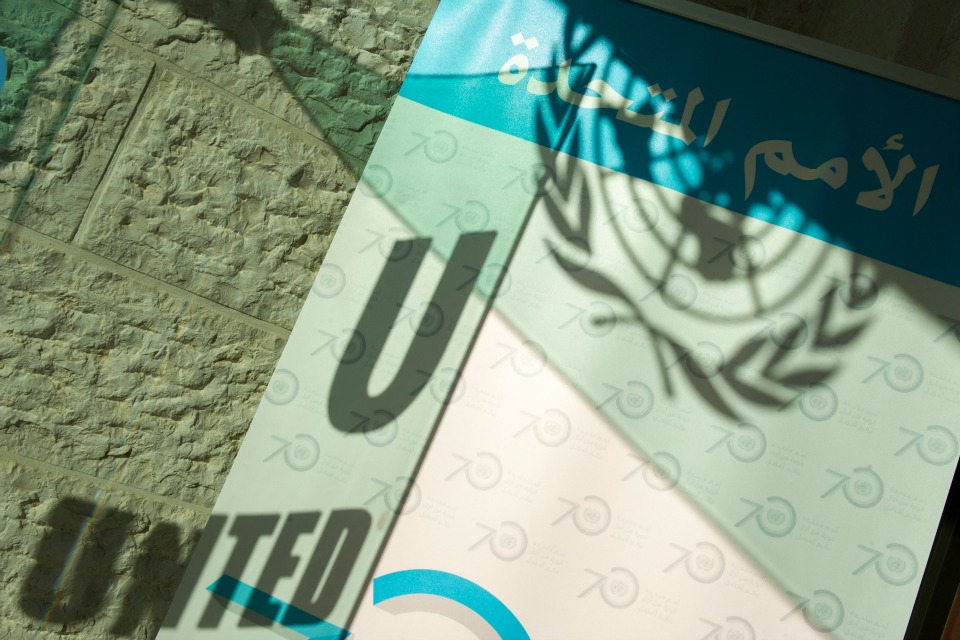"We remain convinced that a negotiated two-state solution is the only way to resolve the conflict."
Statement by Ambassador Matthew Rycroft of the UK Mission to the UN at the Security Council Open Debate on the Middle East

Thank you Mr President. I welcome the briefing from the Deputy Secretary-General and I welcome the Secretary-General ongoing visit to the region.
“We are all human beings, we are all equal”. Those are the words of Uri Rezken, an Israeli man stabbed last week. Uri was attacked in a supermarket while working side by side with an Arab colleague. His assailant was an Israeli, but as Uri said afterwards, “it does not matter if an Arab stabbed me or a Jew stabbed me, a religious, orthodox or secular person. I have no words to describe this hate crime.”
Uri is just one victim of the continuing violence and terrorist attacks across Israel and the Occupied Palestinian Territories. To his story you can add countless others - from Palestinians, from Israelis and now from an Eritrean man, Haptom Zerhom, who like Uri was a victim of mistaken identity. Like Haptom, too many of these victims are now unable to tell their own story. All of us in this Council understand the frustration at the lack of progress towards peace. But we must send a clear and unwavering message today that neither frustration nor anything else can possibly justify these attacks; there are no words to describe these hate crimes.
The British Government strongly condemns all acts of violence and incitement - no matter who committed them. We are clear that the parties need to agree on the status quo at Haram al-Sharif Temple Mount and commit to it. They need to tackle incitement, which fuels violence and hostility. And both sides need to do all they can to end the violence. If it doesn’t stop, it will only drag the parties further away from the solution that we all want.
This Council must also play its role in de-escalating the situation and in driving forward political progress towards a lasting solution. This means increasing efforts to find practical improvements on the ground. This is vital if we are to preserve the viability of the two-state solution.
Without progress in three areas, I fear that we will see only more violence.
First, Gazans must be able to secure jobs and build their livelihoods. This means free movement of people and goods. It means immediate, practical measures from Israel to develop water and energy infrastructure. And it means Palestinian factions pushing forward with reconciliation and making reconstruction of Gaza a priority.
Second, progress is desperately needed too in the West Bank. The transfer of authority over Area C to the Palestinian Authority, as the Oslo Accords set out, is critical to a successful two-state solution. It could unlock huge economic benefits. Immediate progress towards this would not only improve the lives of thousands of Palestinians, it would also help restore much needed faith in the peace process.
And third, as my Prime Minister and Foreign Secretary made clear to Prime Minister Netanyahu last month, the expansion of settlements and demolition of Palestinian homes must stop. They are illegal under international law, they erode faith in the two-state solution, and they erode the physical viability of a Palestinian state.
We remain convinced that a negotiated two-state solution is the only way to resolve the conflict. It is the only way to see a safe and secure Israel coexist alongside a viable, sovereign Palestinian state. The UK will continue to work towards this urgent priority, in this Council and elsewhere.
A long term political settlement, one that ensures a safe future for all, is exactly what we want elsewhere across the Middle East. In the interest of time I will not discuss today Lebanon, Iraq, Yemen or Libya. Instead I will focus on Syria, where tragically the prospects are deteriorating. Refugees have increased to 4 million; tens of thousands are crossing into Europe to avoid barrel bombs and other violations of human rights. ISIL and terrorist groups continue to pose a threat, both in the region and beyond.
To have a long term response to the migration crisis and the ISIL threat, we must tackle the root cause. Make no mistake, the root cause in Syria is the brutality of the Assad regime. Indiscriminate attacks on civilians, through barrel bombs and the use of chemical weapons, have caused 12 million Syrians to flee their homes and have left a quarter of a million dead.
So the United Kingdom, with France and Spain, will circulate shortly concrete proposals designed to bring to an end the indiscriminate use of barrel bombs. This Council has always been united on the need to find a political solution in Syria. Together we supported the Geneva Communiqué and voted in favour of its principles. But now Russian military intervention on the side of Assad is assisting the targeting of moderate armed groups.
Such actions only diminish the prospects of a political process. Some of the groups targeted are the very same ones who Staffan de Mistura had invited to join his talks. Russia has undermined the constructive relationship that we built in the Council, when we came together to make some progress on chemical weapons and humanitarian issues.
Russia’s decision to target moderate armed groups will only prop up Assad and undermine peace. For Assad’s brutality remains ISIL’s greatest recruiting sergeant. Assad has showed that he cannot be a partner against ISIL. And in deciding to take part in Syria’s civil war, Russia will now have to defend its actions to this Council and indeed to Sunni communities around the world. And it must use its influence to get the regime to stop its worst excesses and brutality.
Thank you.